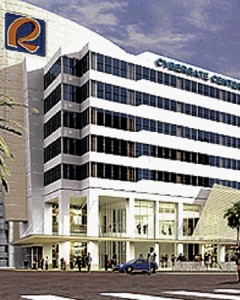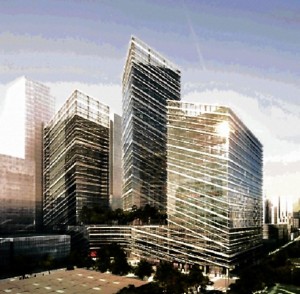BPOs causing ‘hamburgerization’ of CBDs

SOME office buildings in the CBDs give in to restaurants, fast-food establishments and convenience store.
More business process outsourcing (BPO) companies are planning to set up shop in the Philippines.
In the July 2012 Jones Lang LaSalle Leechiu Philippine Property Market Monitor Pulse, a certain BPO company (which is present in more than 50 countries) opened a new 1,000-seat facility in the Ortigas central business district in Pasig City; General Electric is planning to establish its own BPO office in the country, and Paxys and Canadian firm Simpro Solutions Inc. have agreed to form a joint venture that will engage in BPO activities here.
As more of these offices gain foothold here, the basic sustenance of the more than 600,000 BPO employees in the country has led to the loosening of restrictions of some office buildings in the CBDs to give in to restaurants, fast-food establishments and convenience stores.
High visibility
Julius Guevara, Colliers International associate director, valuation and advisory services and head of consultancy and research, said commercial units in buildings in the major CBDs are now typically occupied by banks/financial service companies, convenience stores, personal services and most especially, food outlets.
Guevara said: “This is due to the high visibility of commercial spaces from the street level, which is important to any commercial establishment as it draws in foot traffic. Given that ground floor units are rented out at a premium of at least 30 percent versus the upper floors, your typical office tenant would prefer to lease an upper floor unit to save on rental costs, particularly if a ground floor presence is not essential to their business.”
He added that if an office building is known to have a low square-meter-per-employee ratio (which basically means a high employee occupancy), which is typical if there is a BPO tenant, then your typical fast-food company would gladly pay a premium for a ground floor space in order to capture that market. This would then displace your other tenant types who cannot afford the same rent premium.
From a developer or building owner’s point of view, returns would be higher from fast-food locators since commercial leases with this tenant type usually stipulate a payment of either a minimum predetermined rent or a share of around 5-10 percent of gross sales, whichever is higher. Given the foot traffic and revenue potential, one can see why a building owner would prefer these tenants.
Proliferation
Claro dG Cordero Jr., Jones Lang LaSalle Leechiu’s head of research, consulting and valuation, said the proliferation of food establishments on the ground levels of buildings within (CBDs) was largely due to the loosening of the restrictions in the past regarding the use of the ground floor space.
“Renting the ground floor space to non-office (i.e., retail establishments) tenants yield higher returns primarily because of higher rents that could be charged. The food establishments are usually preferred due to the presence of variable revenue source (e.g. percentage of sales) when compared with nonfood establishments. Likewise, the office employees are the natural catchment market for these establishments.”
Graveyard shift business
Guevara said BPO companies actually require the availability of 24-hour services in order to attract and support a steady labor pool. This includes transportation and food services that are readily available during the wee hours of the morning. This is why it is more commonplace to see a McDonald’s or Jollibee operating 24/7, especially near BPO facilities. Developers and office building owners also make it a point to have this type of locator in their building, so that their property will be attractive to the BPO operators.
Cordero said the loosening of the restrictions on the use of ground floor space was partly influenced by the need to service the (retail) demand coming from the employees in the BPO industry—the bulk of which go to the office during the graveyard shift and where no shopping centers and malls would be open to serve them.
Guevara said the ability to attract a talented labor pool is essential to the success of a CBD.
Influence of ‘Jolli-jeeps’
He said: “Having food establishments conveniently located around places of work facilitates this goal. Furthermore, the availability of affordable food choices is necessary to keep employees satisfied with their place of work. For example, some companies that were considering moving to BGC from Makati have encountered resistance from their employees because of the absence of cheap food services such as “Jolli-jeeps,” which are readily found within the Makati CBD. So one has to consider that not all employees may be able to afford or even prefer to eat at fast-food-type restaurants every day.”
Guevara added that he does not see any disadvantage in terms of the presence of food establishments in a CBD. He stressed that “it is necessary to have a diverse mix of food choices and price points in order to serve all segments of the working community.”
Cordero said one major advantage of food restaurant businesses operating in CBDs is the high traffic of customers.
“Another advantage is the longer operating hours (if the shop does not intend to operate for 24 hours), which also means opportunities for additional revenues. This could actually be a disadvantage in the long run, as longer operating hours may take a toll on the profit margins as you need to employ more resources to serve your markets. Another disadvantage in operating in CBDs is the level of competition among other establishments. One must be prepared to innovate in order to serve the ever-changing demand of its catchment market,” Cordero added.


